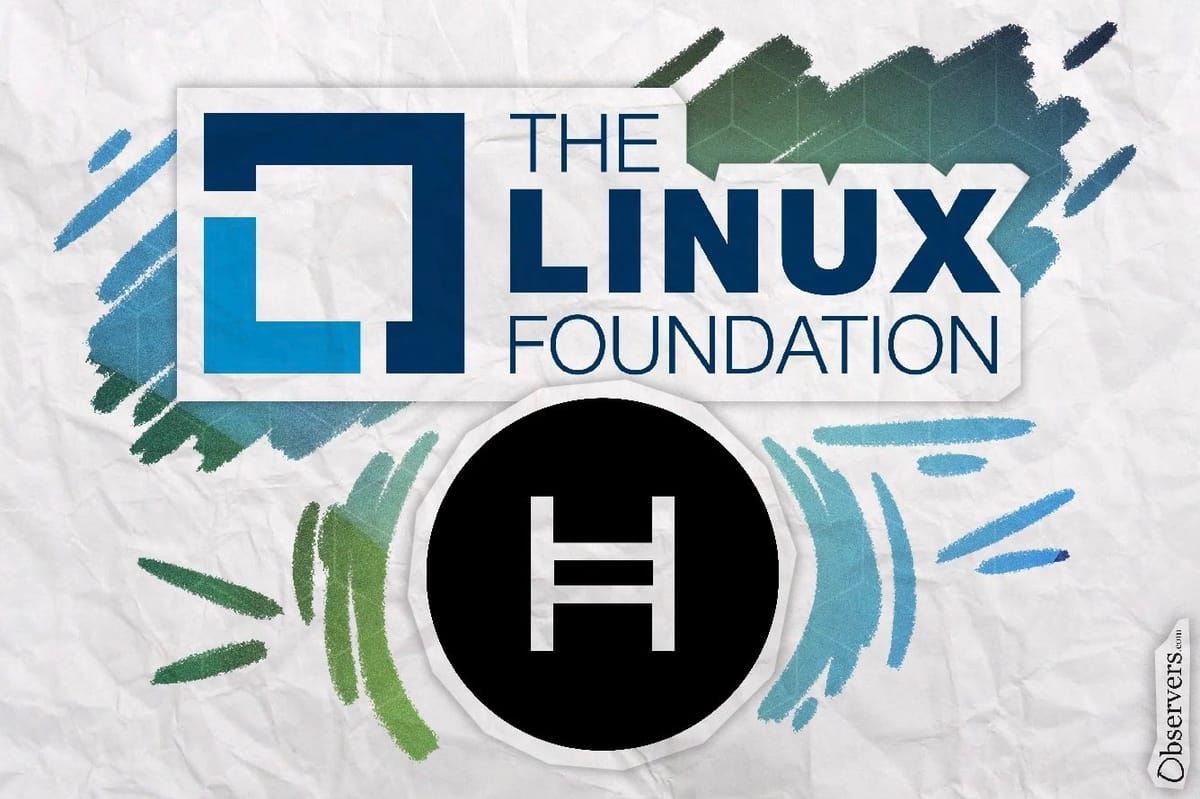
Hedera has joined the newly formed Linux Foundation Decentralized Trust, with the network donating the entirety of its source code.
More than 100 founding members are a part of the project, including Brazil's central bank.
The Linux Foundation said the trust is an umbrella organization—"fostering collaboration and innovation across a growing ecosystem of blockchain, ledger, identity, interoperability, cryptographic and related technologies."
Accenture is also a key player in the project, and its blockchain technology lead Michael Klein says open-source initiatives are vital for driving cross-industry collaboration and creating the next generation of the internet.
It's joined by the Hyperledger Foundation, and the technologies this project has developed will now be regarded as part of the Linux Foundation Decentralized Trust projects. But the brand will live on, with founder and CEO Perianne Boring saying the partnership will "modernize infrastructure across vital sectors and foster a digital-first global economy."
Key tools developed by Hedera, including its hashgraph consensus mechanism and core services, have now been rebranded as "Hiero," with key values of being fair, fast, secure, decentralized, leaderless and open.
"No one should have the ability to re-prioritize your transactions, or drop them, or front-run, or sandwich trade, or otherwise disadvantage you. The hashgraph algorithm is leaderless. We all deserve a more fair world."
In its own announcement, Hedera said Hiero "will foster a rich ecosystem of developers, innovators and enterprises"—and fuel the development of new wallets, decentralized exchanges and software development kits. The statement added:
"This marks the first time in history a public blockchain has donated its full codebase to an independent foundation. Hiero represents a crucial step in reinforcing the principles that have driven us from the beginning: decentralization, transparency, and security. With this contribution, we are setting a new precedent for other blockchain ecosystems—one where cooperation triumphs over competition, and where openness builds trust."
All of this comes after a turbulent period for Hedera. Leemon Baird and Mance Harmon left the project, but continued to own the patent for the Hashgraph technology through a private company called Swirlds. Hedera's Governing Council later voted to buy this intellectual property back and make it open source, but there's been no confirmation of whether this transaction has happened.
Asset Tokenization Studio from Hedera
In other developments, Hedera has also launched a new Asset Tokenization Studio—an open-source toolkit that allows tokenized bonds and equities to be configured, issued and managed on its network.
Executives hope this will lower technical barriers to entry while allowing greater volumes of real-world assets to migrate on-chain in a compliant way.
It's also been described as a "starting point," meaning support for other asset classes and jurisdictions will emerge over time—as well as a greater number of features in line with feedback from users.
The new studio is a joint initiative that was led by the HBAR Foundation, Hashgraph, RedSwan and ioBuilders. RedSwan's Edward Nwokedi said:
"The Asset Tokenization Studio is the result of months of development, fine-tuning, and critical examination of existing hindrances to commercial tokenized real-world asset adoption, such as the limitations with ERC-1400."
The hype surrounding tokenization shows no sign of abating—and this new decentralized trust, complete with dozens of members, has the potential to catalyze adoption.

